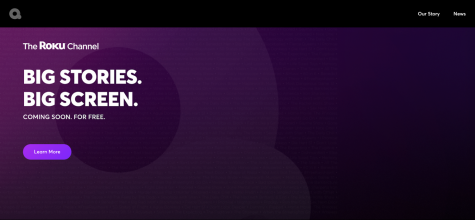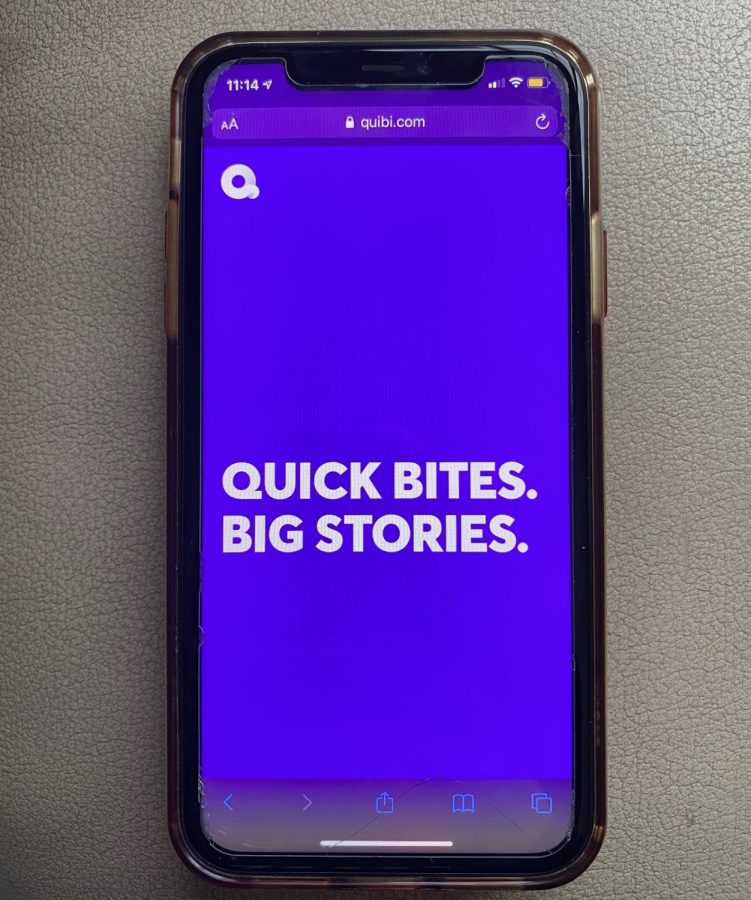The Rise and Fall of Quibi
How the $2 billion platform crashed and burned within 6 months.
The former welcome page for Quibi users.
Quibi, the first mobile video streaming service, shut down in just over 6 months after launching their platform in April of 2020. Founded by media mogul Jeffrey Katzenberg, co-founder of DreamWorks Pictures, and led by Meg Whitman, former Chief Executive Officer of eBay and Hewlett-Packard, Quibi rose to prominence with its innovative business — producing content specifically for mobile viewing. The company is named for its on-the-go content, in which shows are formatted in their namesake 10-minute “quick bites” episodes.
Seen as the most revolutionary idea in the media industry since Netflix, Quibi raised approximately $1.75 billion from eager investors. Led by Madrone Capital — an investment fund run by the Walton family — Quibi has raised capital from the Big Five major Hollywood studios and investment banks alike, including Goldman Sachs, JPMorgan Chase, and even the Alibaba Group. Reportedly shutting down in the interest of saving shareholder equity, Katzenberg and Whitman announced Quibi’s intention to turn over its remaining funds and assets to its investors. In a press release, the company announced, “While we have enough capital to continue operating for a significant period of time, we made the difficult decision to wind down the business and return cash to our shareholders …Over the coming months we will be working hard to find buyers for these valuable assets who can leverage them to their full potential.”

Of their approximately $2 billion cash pile, Quibi invested over $1 billion into producing original content along with casting A-list directors and celebrities like Kristen Bell, Kevin Hart, and Steven Spielberg. Initially debuting with over 40 shows, the service planned on releasing a total of 8,500 episodes across 175 original shows. However, production slowed as disappointing ratings rolled out, with shows averaging a rating of approximately 50% on Rotten Tomatoes. Following the shutdown, it was announced that Roku, Inc. had purchased the entire library of Quibi original programming for $100 million to release.
Taking advantage of the confidence demonstrated in their credentials and large financial stockpile of the company, Katzenberg and Whitman are reported to have ignored advisors and to be solely responsible for driving the business into the ground. Betting on consumer demand for short-form, on-demand content, Quibi’s launch at the height of the pandemic largely drove down subscription projections as the business model failed to adapt to the remote world caused by the pandemic. Initially forecasting 7 million subscribers in its first year, the service failed to attract customers to short form video content after the COVID-19 pandemic diminished consumer demand.
Following Quibi’s failure, the future of paid short-form, on-demand content is in peril. In a press release, Katzenberg stated, “Quibi is not succeeding. Likely for one of two reasons: because the idea itself wasn’t strong enough to justify a standalone streaming service or because of our timing.” With Quibi’s shutdown, the monopoly that large corporations hold on the entertainment industry is clearly exposed. Consumers now only have video platforms like YouTube, a subsidiary of Google, and social media networks such as Instagram, a subsidiary of Facebook, with which to turn. This causes corporations to now have a growing amount of control over the dissemination of public information.
“Quibi is not succeeding. Likely for one of two reasons: because the idea itself wasn’t strong enough to justify a standalone streaming service or because of our timing,” said Jeffrey Katzenberg.
Jonathan Wu is a Sports Editor for ‘The Science Survey’ and is excited to apply his interests to journalism this year. As Sports Editor, he oversees...











